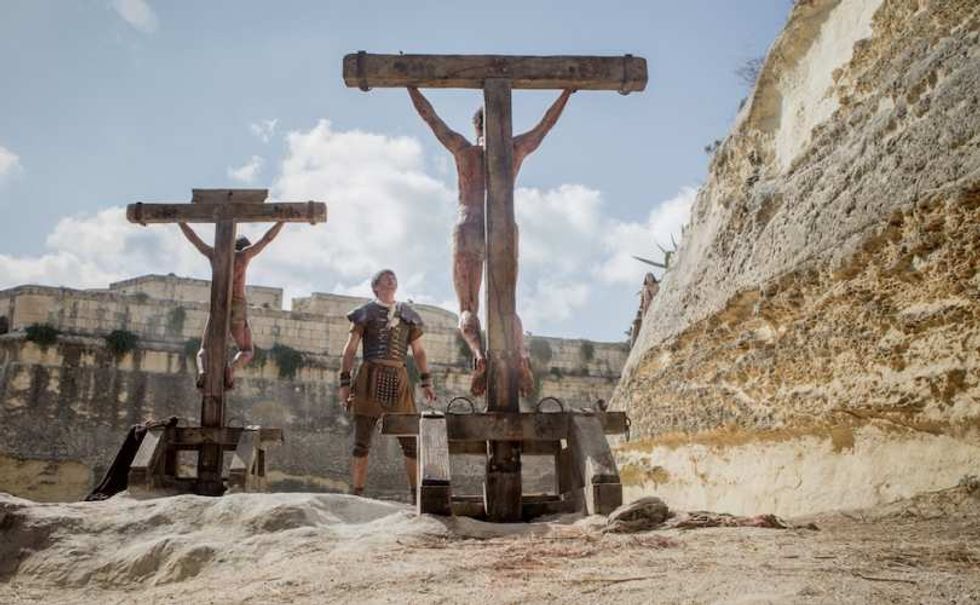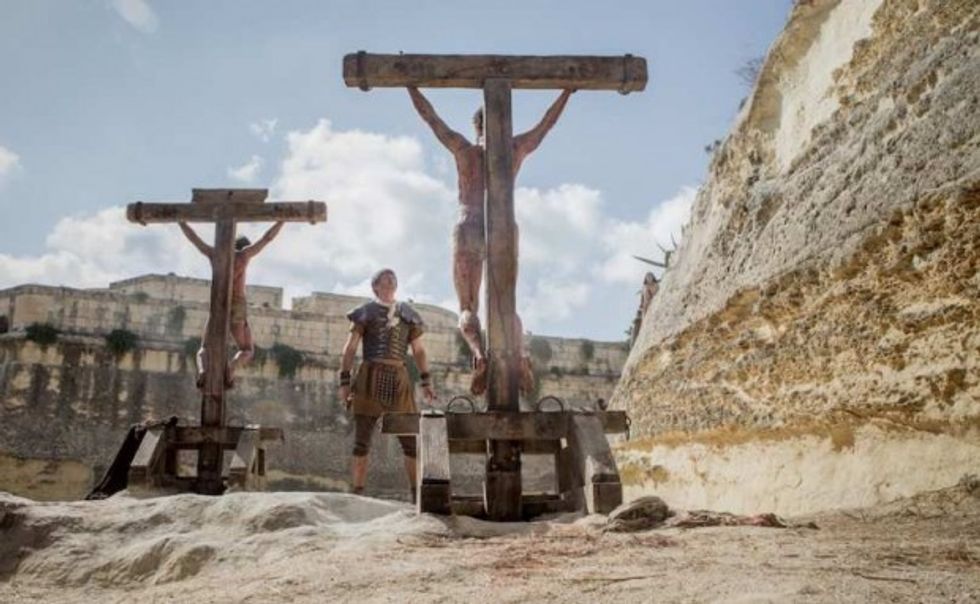
Screengrab

**The following is an in-depth review of “Risen” and does contain spoilers.**
SPOILER ALERT: Jesus is alive!
Now that we got that out-of-the-way, "Risen" is the latest film from Affirm Films, the studio that produced "War Room" and "Heaven is For Real." Unlike the previous two films, "Risen" isn't a modern parable, rather it is set in Biblical times during the crucifixion and resurrection of Jesus Christ.
Joseph Fiennes plays Clavius, the Tribune under Roman governor Pontius Pilate. Upon returning from battle, where Clavius killed Barabbas - recently released from a Roman prison - Pilate informs Clavius that he must oversee the execution of a Jewish man claiming to be the Hebrew Messiah.

The crucifixion goes as planned, and soon this supposed messiah - initially referred to only as the Nazarene - dies along with two other criminals being executed along with him. The two other criminals are thrown into a community burial pit - the place on which the men were crucified, Golgotha, literally means "Place of Skulls" - but the Nazarene's body is actually claimed by a man called the Arimathean.
The Arimathean has a letter signed by Pontius Pilate that allows him to take the body of the Nazarene and place it in his own burial tomb. Clavius is a little confused by the request, but sees no reason not to comply if he went to the trouble of getting Pilate's permission, and he allows the Arimathean to take the body. This does not sit well with the Jewish religious leaders, the Sanhedrin, and led by a rabbi named Caiaphas.
Caiaphas complains to Pilate - which is made clear in the film that this is a regular enough occurance to be annoying - and demands that Roman guards be placed at the site of the tomb. Caiaphas is worried that the Nazarene's disciples might try to steal the body and stage a faux resurrection.
At first, Clavius suggests that if the Sanhedrin is so worried about the body being stolen, they are free to post their own guards. Pilate is inclined to agree, but Caiaphas' incessant complaining soon causes Pilate to order the guards be placed if for no other reason than to shut Caiaphas up. Again, Clavius is placed in charge of carrying out this task.
The tomb is sealed and the guards are placed, but that doesn't matter as come Sunday morning the seal is broken, the tomb opened, and the guards are missing. Not wanting to hear anymore of Caiaphas' whining, Pilate orders Clavius to find the body post-haste.
Clavius sets off on - according to the film's tagline - "The manhunt that changed the course of human events."
"Risen" looks at the death and resurrection of Jesus Christ from a different perspective than how audiences are used to being exposed to the story, however it isn't entirely original either. It shares many narrative elements with the 1942 novel - and subsequent 1953 film adaptation - "The Robe" as well as Max Lucado's 1992 short story "Resurrection Morning."
Joseph Fiennes plays the role of Clavius remarkably, first as a gruff soldier who has seen too much and has no time for nonsense and then as a man who is watching his entire world and everything he knows of that world come apart at the seams.
Where "Risen" departs from almost every other English-speaking Biblical epic is that it refers to Jewish characters by the Hebrew names and not the Anglicised versions. For example, God is always called Yahweh in the film and Jesus is referred to as Yeshua.
The casting also endeavors to be ethnically accurate. The Romans are all played by white European actors, but the Jewish characters are played by Israeli actors or actors who can easily pass for Israeli or Middle Eastern. Yeshua the Nazarene is played by "Fear the Walking Dead"'s Cliff Curtis, who is of Maori descent.
"Risen" manages to do a lot with its meager $20 million budget. The film looks amazing and the scope is equal to that of a film costing 10 times what the studio spent. There is really only one scene that was obviously shot on a stage, and while it's obvious it really doesn't detract any from the experience of the film.
"Risen" does drag a bit in the middle. Clavius' investigation does seem rather repetitive in some parts, and gets a little boring, but as a whole the film is definitely worth a look. These moments are relatively few, however, and for the most part the film's story is rather engaging. It's certainly made for believers, and that audience will definitely enjoy it.
–
TheBlaze contributor channel supports an open discourse on a range of views. The opinions expressed in this channel are solely those of each individual author.